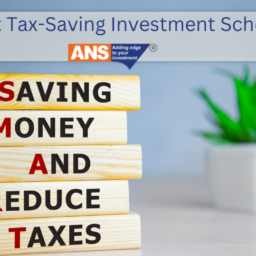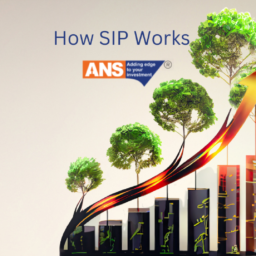People work hard all their life to build a comfortable life for themselves. But with the increasing cost of living and inflation, it’s important to consider their financial future and plan for retirement. One of the ways to secure the finances is to make the right investments that not only offer good returns but also provide tax benefits.
For senior citizens in India, tax-saving investments are a crucial aspect of their financial planning, and with the year 2023 upon us, it’s time to explore the best options available. Various avenues offer tax benefits to senior citizens, from fixed deposits to mutual funds and health insurance, while securing their financial future. So, if you’re a senior citizen looking to optimize your tax savings, buckle up, and get ready to explore the world of tax-saving investments in India in 2023!
Here are some of the best tax-saving investment options for senior citizens in India in 2023:
-
Senior Citizen Savings Scheme (SCSS)
Senior Citizen Savings Scheme (SCSS) is a savings scheme for senior citizens in India, which the Government of India backs. It was launched in the year 2004 and is available to residents of India who are aged 60 years or above. The scheme is administered by India Post offices and designated branches of banks across India.
The SCSS has a tenure of 5 years, which can be extended for an additional period of 3 years. It offers a higher interest rate than most other savings schemes in India and is considered to be a safe investment option. As of February 2023, the interest rate offered on the SCSS is 7.4% per annum. With a minimum investment of just Rs. 1,000 and a maximum investment limit of Rs. 15 lakhs, the SCSS provides a safe and reliable investment option for senior citizens who want to secure their future. This scheme is a safe and secure investment option that offers guaranteed returns.
-
Fixed Deposits (FDs)
Fixed deposits are a popular investment option for senior citizens as they offer fixed returns and are safe and secure. The interest earned on fixed deposits is eligible for tax benefits under Section 80C. You can choose to invest in fixed deposits with banks, post offices, and non-banking financial companies (NBFCs). The interest rate on fixed deposits varies depending on the institution but typically ranges between 6% to 8% p.a.
-
Pradhan Mantri Vaya Vandana Yojana (PMVVY)
Pradhan Mantri Vaya Vandana Yojana (PMVVY) is a government-backed pension scheme for senior citizens in India, which was launched in May 2017. The scheme provides a guaranteed return of 7.4% per annum for a policy term of 10 years. It is available for individuals aged 60 years and above.
Under the scheme, the policyholder can receive monthly, quarterly, half-yearly, or yearly pension payments. The minimum pension amount that can be received is Rs. 1,000 per month, and the maximum amount is Rs. 10,000 per month. The scheme also allows for premature exit if the policyholder or their spouse has a critical or terminal illness.
PMVVY is managed by the Life Insurance Corporation of India (LIC), which is a state-owned insurance company. The scheme is designed to provide senior citizens with a regular income stream to meet their financial needs during their retirement years.
-
Equity-Linked Saving Schemes (ELSS)
Equity-Linked Saving Schemes (ELSS) are mutual funds that invest primarily in equity or equity-related instruments. It is eligible for tax benefits under Section 80C of the Income Tax Act and has a lock-in period of 3 years. While ELSS is a good investment option for long-term growth, it also carries a higher degree of risk compared to other options, such as Public Provident Fund (PPF) and National Savings Certificate (NSC). Therefore, it is recommended that senior citizens only invest in ELSS if they have a high-risk tolerance and a long-term investment horizon. With no upper limit, you can invest as little or as much as you like in ELSS.
-
National Pension System (NPS)
The National Pension System (NPS) is a pension scheme that offers a regular income after retirement. The contributions made towards NPS are eligible for tax benefits under Section 80C and Section 80CCD(1B). NPS offers two types of investment options – Equity and Corporate Bond – and the investment allocation can be changed as per your preference. The investment returns on NPS are subject to market risk.
It’s important to note that senior citizens have higher exemption limits for tax on interest income, so they should consider this while choosing their tax-saving investments. It’s always a good idea to consult with a financial advisor to determine the best investment option based on your financial goals, risk tolerance, and other individual factors.
Final Thoughts
In conclusion, senior citizens in India will have a range of tax-saving investment options in 2023. While some options, such as the Senior Citizen Savings Scheme and tax-saving fixed deposits, are more conservative, others, such as Equity-Linked Saving Schemes, may offer higher returns but come with a higher degree of risk. It is essential for seniors to carefully evaluate their investment options based on their risk tolerance, financial goals, and investment horizon and to consult a financial advisor for guidance. Senior citizens can secure their financial future and enjoy a stress-free retirement by making smart tax-saving investments.
If you have any questions or need assistance evaluating your tax-saving investment options, don’t hesitate to contact a financial advisor today. Start securing your financial future now!















